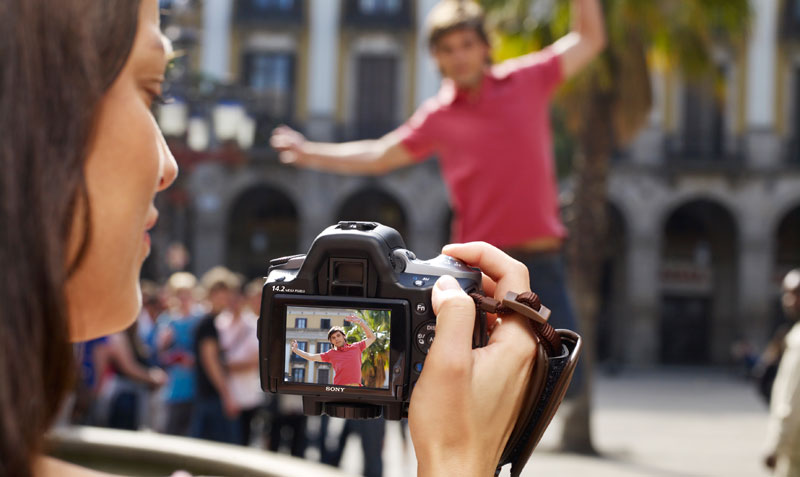Digital Cameras: Freezing the Unlived Now to Remember in Future
Posted in The Gnovis Blog
We all have some moments in our life that we don’t want to ever forget. Since its invention and prevalent use, photographs helped us freeze a beautiful moment and look back to it whenever we wanted to. With digital cameras, keeping a record of memories became even easier and cheaper. Not only do most people have a digital camera, but also probably have a cell phone, or some other gadget that has the capability of shooting images.
This is all great until now. We can practically keep a record of every important event in our lives with a visual reference at a very small cost. This convenience has also changed our conception of what an important event is.

For example I have never seen a babyhood picture of my grandparents. I have a seen a few pictures of my parents. There are more pictures of me and my brother, and I have shot hundreds of pictures of my daughter. It seems like the number of pictures shot during our babyhood is increasing geometrically with the decreasing cost and increasing availability and functionality of cameras. This means that the number of events that we consider “important moments” also increased geometrically.
An image is a visual reference to a past memory. But since you need to shoot an image to have this reference, the very action of shooting an image becomes a part of every experience that we consider important enough to have an image for. In this sense the camera becomes a physical anchor of every important event, and many unimportant events as well. I brought a stop to this by refusing to shoot a picture of every beautiful, funny and interesting moment that involves my daughter. This is because I am tired of running around to get the camera, and look at that important moment from the little screen on the camera, instead of just enjoying the moment and having a clearer image in my mind. The problem is we all now have thousands of images accumulated from that trip we took to that historical site, or from that family reunion or this and that, and we never really look at them again. We have to put them on DVDs or store them on portable memory cards so that they don’t take space in our computer. All in all we want an image so that we can go back to that wonderful moment and relive it. But since the act of shooting the image never allowed us to fully live that moment, looking at the image is not “reliving” it. 
One final aspect of “documenting every moment craze” is the torture of posing as an actor in the important moment. This happens when another individual shoots a photo, mostly without even asking you or the others involved. As the actor, you can either ignore the photo shooting and don’t look at the camera, which in itself is another form of acting, or pose, smile and look at the camera. It is a doubled edged sword. Both intervenes with the moment and functions as a contaminant of your experience.
Solution? Think twice before you pull out your camera.
P.S. This was my first blog post after a long break. I am excited to be back!
